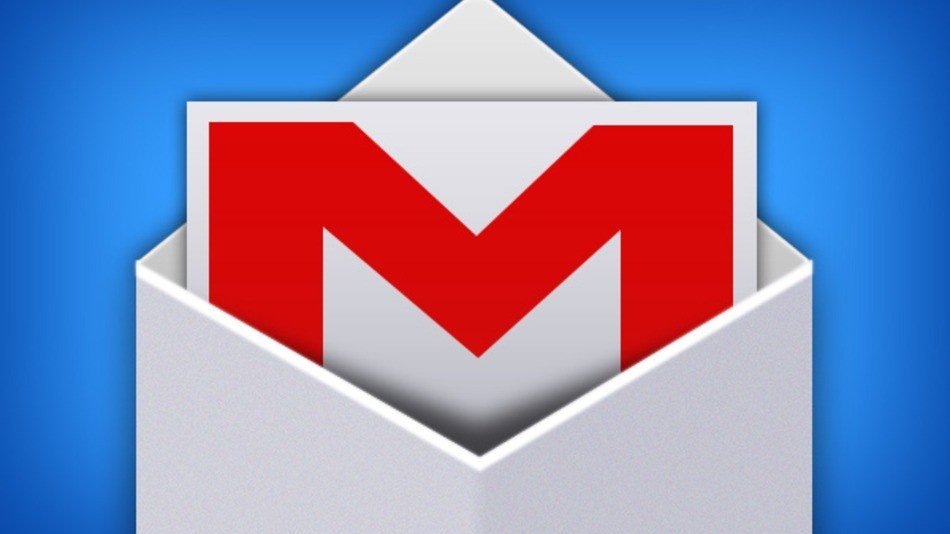Welcome, savvy marketer! Are you ready to take your B2B strategy to the next level? In today’s digital age, B2B marketing technology is essential for businesses that want to stay competitive and achieve digital dominance. From marketing automation to social media management tools, there are a plethora of digital marketing solutions available to help you optimize your strategy and drive results.
In this article, we will explore six of the most essential B2B marketing technology tools to help you stay ahead of the game. Whether you’re looking to streamline your processes, generate leads, or nurture customer relationships, these tools will put you in control of your business’s success.
Key Takeaways:
- B2B marketing technology is essential for businesses looking to stay competitive in today’s digital age.
- There are a variety of digital marketing solutions available to optimize your strategy and drive results.
- In this article, we will explore six essential B2B marketing technology tools to help you achieve digital dominance.
Maximizing Efficiency with Marketing Automation
Ah, marketing automation. The ultimate buzzword in B2B marketing. But what is it, exactly? Simply put, marketing automation is the use of software to automate repetitive marketing tasks. It streamlines your processes, saves you time, and boosts your revenue. What’s not to love?
With marketing automation, you can create personalized campaigns that generate leads and nurture them until they become customers. You can track your prospects’ behavior, send them relevant content, and score them based on their engagement. All without lifting a finger. Well, maybe one finger to click a button.
The Benefits of Marketing Automation
Why should you bother with marketing automation? Here are a few reasons:
- Increased efficiency: With automation, you can do more with less. You can set up campaigns in advance and let them run on autopilot. No more manual follow-ups or data entry.
- Better lead management: Marketing automation helps you score and prioritize leads, so your sales team can focus on the hottest prospects. You can also track a lead’s journey through the sales funnel and see where they need more attention.
- Improved customer retention: Automation allows you to send timely and relevant messages to your customers, keeping them engaged and loyal.
- Data-driven insights: With marketing automation, you can track your campaigns’ performance and see what’s working and what’s not. You can use this data to optimize your strategy and improve your ROI.
Choosing the Right Marketing Automation Tools
There are many marketing automation tools out there, each with its own strengths and weaknesses. When choosing a tool, consider your budget, your goals, and your team’s needs. Here are a few options to get you started:
| Tool | Best For | Price |
|---|---|---|
| HubSpot | All-in-one marketing platform | Starting at $50 per month |
| Marketo | Enterprise-level businesses | Contact for pricing |
| Pardot | B2B companies using Salesforce CRM | Starting at $1,250 per month |
| Act-On | SMBs with limited resources | Starting at $900 per month |
Before committing to a tool, make sure to do your research and try out a few options. You want to find a tool that fits your business’s unique needs and helps you achieve your marketing goals.
With marketing automation, you can take your B2B marketing to the next level. You’ll save time, generate more leads, and nurture your customers like a pro. Get started today with the right marketing automation tool for your business.
Mastering Customer Relationships with CRM Software
You’ve heard it before: building strong customer relationships is key to B2B success. And the best way to do that is with Customer Relationship Management (CRM) software. With so many options out there, it can be hard to know where to start.
Don’t worry, we’ve got you covered. A good CRM system is like a personal assistant that helps you keep track of important information and interactions with your customers. It can help you organize your sales pipeline, manage customer data, and create targeted marketing campaigns.
The Benefits of CRM Software
Using a CRM system can help you:
- Centralize your customer data and interactions in one place
- Create more personalized marketing campaigns
- Improve customer service and support
- Track and analyze customer behavior and preferences
- Optimize your sales pipeline
CRM software is especially useful for businesses with large customer bases or long sales cycles. It can help you keep track of where each customer is in the sales funnel, and send targeted messages to move them closer to conversion.
Choosing the Right CRM Software
When choosing a CRM system, consider factors like:
- Size of your customer base
- Integration with other tools (like email marketing or social media)
- Customization options
- Price and scalability
Some popular options include Salesforce, HubSpot, and Zoho CRM. Each has its own strengths and weaknesses, so be sure to do your research and choose the one that best fits your business needs.
Remember, building strong customer relationships isn’t just about having a good CRM system. It’s also about providing excellent customer service, being responsive to feedback, and showing your customers that you value their business.
“A good CRM system is like a personal assistant that helps you keep track of important information and interactions with your customers.”
With the right CRM software and a customer-centric mindset, you can take your B2B marketing to the next level and achieve digital dominance.
Unlocking the Potential of Email Marketing Platforms
Oh, email. It’s been around forever, but guess what? It’s still a big deal in the world of B2B marketing. And with the right email marketing platform, you can take your lead generation and nurturing strategies to new heights.
So, what are the top email marketing platforms to consider? Here are a few:
| Platform | Key Features |
|---|---|
| Mailchimp | Easy to use, customizable templates, advanced analytics |
| HubSpot | All-in-one marketing platform, personalized content, automation |
| Constant Contact | Integrates with social media, event management tools, surveys and polls |
These platforms offer a range of options to suit your business’s unique needs. From automation to personalization, you can create targeted campaigns that convert leads into loyal customers.
But Wait, There’s More!
Do you want to take your email marketing to the next level? Of course, you do! Here are a few tips:
- Segment your email list to personalize your messaging
- Create eye-catching subject lines to improve open rates
- Include compelling calls-to-action to drive conversions
“The money is in the list.” – Every Successful Email Marketer Ever
So, start building your list, choose your email marketing platform, and get ready to see results. With the right tools and strategy, you can dominate the digital landscape and drive success for your B2B business. Happy emailing!
Creating Compelling Content with Content Management Systems
So, you want to create killer content that captures your audience’s attention and leaves them wanting more? Well, you’re in luck! With the help of content management systems (CMS), you can streamline your content creation process and start producing high-quality pieces that drive engagement and conversions.
First things first, let’s define what a CMS is. Essentially, a CMS is a platform that allows you to create, manage, and distribute content across multiple channels. From blog posts and social media updates to videos and infographics, a CMS can help you organize and optimize your content strategy for maximum impact.
One of the biggest advantages of using a CMS is the ability to collaborate with your team in real-time. Whether you’re working on a blog post or a whitepaper, you can share drafts, provide feedback, and track changes using the platform’s built-in tools.
But that’s not all. A CMS can also help you optimize your content for search engines and social media platforms. By analyzing data and trends, you can identify keywords and topics that resonate with your target audience and incorporate them into your content strategy.
Another key feature of a CMS is the ability to automate your content distribution. With just a few clicks, you can schedule social media posts, email newsletters, and other updates to go out at specific times and dates. This not only saves time but ensures that your content is reaching your audience at the right time and in the right place.
So, what are you waiting for? If you want to take your content strategy to the next level, start exploring the world of content management systems today!
Amplifying Reach with Social Media Marketing Tools
Okay, friend, let’s talk social media. Your B2B marketing strategy wouldn’t be complete without it. But with so many social media platforms out there, it can be tough to know where to focus your efforts. That’s where social media marketing tools come in. These tools help you manage your social media presence and amplify your brand’s reach. Here are a few top tools to consider:
| Tool | Description |
|---|---|
| Hootsuite | One of the most popular social media management tools, Hootsuite allows you to schedule posts, monitor your accounts, and track analytics all in one place. |
| Sprout Social | Similar to Hootsuite, Sprout Social gives you the ability to schedule posts, manage multiple accounts, and analyze performance. It also offers a robust social listening feature, allowing you to monitor conversations related to your brand. |
| Buffer | Buffer is a great tool for scheduling posts to multiple social media accounts. It also offers detailed analytics so you can track your performance and see what’s working. |
When it comes to social media, it’s important to remember quality over quantity. It’s better to have a strong presence on a few platforms than a weak presence on many. Consider which platforms your target audience is most active on and focus your efforts there.
Another way to amplify your social media reach is through influencer marketing. Partnering with influencers in your industry can help you reach a wider audience and build credibility. Look for influencers who have a strong following and whose values align with your brand.
Finally, don’t forget about social media advertising. Platforms like LinkedIn and Facebook offer highly targeted advertising options that can help you reach your ideal customer. Consider investing in social media ads to amplify your reach even further.
Empowering Sales with Sales Enablement Software
You’ve got a killer product, a talented sales team, and a solid marketing strategy. So, why aren’t your sales numbers where you want them to be? The answer may lie in your sales enablement strategy. Without the right tools and resources, your sales team may struggle to close deals and hit their quotas.
That’s where sales enablement software comes in. These powerful tools provide your sales team with everything they need to succeed, from training materials and customer insights to prospecting resources and deal data. Here are some of the top sales enablement tools on the market today:
1. HubSpot Sales Hub
If you’re looking for an all-in-one solution for your sales team, HubSpot Sales Hub is a great choice. This software provides a range of features, including:
– Email tracking and templates
– Meeting scheduling
– Document management and tracking
– Deal and pipeline management
– Sales analytics and reporting
With Sales Hub, your sales team can stay organized and focused on closing deals, while also gaining valuable insights into their performance and progress.
2. Highspot
Highspot is a sales enablement platform that focuses on content management and personalization. With Highspot, you can:
– Centralize your marketing and sales content
– Customize content for specific buyers and use cases
– Analyze content engagement and effectiveness
– Receive real-time insights and recommendations
With Highspot, your sales team can deliver personalized, relevant content to prospects and customers, increasing their chances of success.
3. Showpad
Showpad is a sales enablement tool that emphasizes training and coaching. With Showpad, you can:
– Create and deliver interactive training materials
– Provide on-demand coaching and feedback
– Analyze sales performance and progress
– Personalize sales content for specific buyers
With Showpad, your sales team can stay up-to-date on the latest training and coaching materials, while also delivering personalized content to their prospects and customers.
4. SalesLoft
SalesLoft is a sales engagement platform that helps sales teams connect with prospects and customers in a more meaningful way. With SalesLoft, you can:
– Automate sales outreach and follow-up
– Personalize messaging and content for different buyers
– Analyze sales engagement and effectiveness
– Integrate with other sales and marketing tools
With SalesLoft, your sales team can focus on building relationships and closing deals, while also leveraging the power of automation and personalization.
Conclusion
Sales enablement software can make a huge difference in the success of your B2B sales efforts. By providing your sales team with the right tools and resources, you can empower them to close more deals, generate more revenue, and drive your business forward. So, if you’re struggling to meet your sales goals, it may be time to invest in sales enablement software.


![The Blogger's Guide To Affiliate Links: rStyle, ShopStyle, Amazon [2024 Update] - 20 ways to make money online in 2021](https://www.toptut.com/wp-content/uploads/2021/06/woman-holding-bunch-money-looks-very-surprised-scaled-1.jpg)






